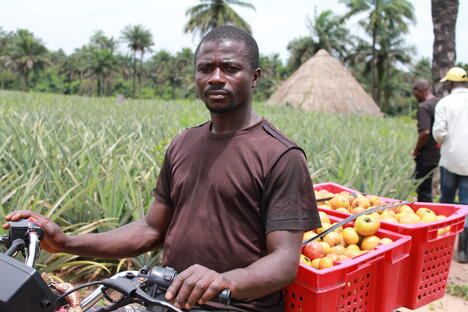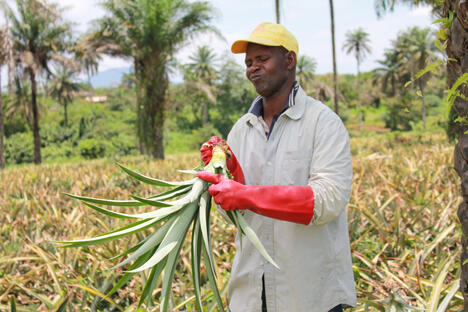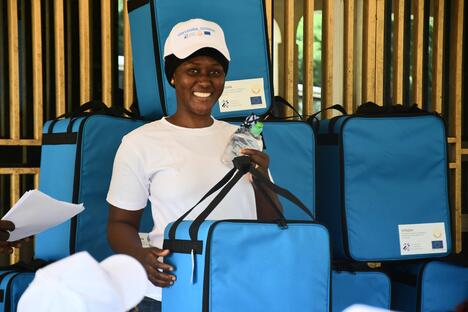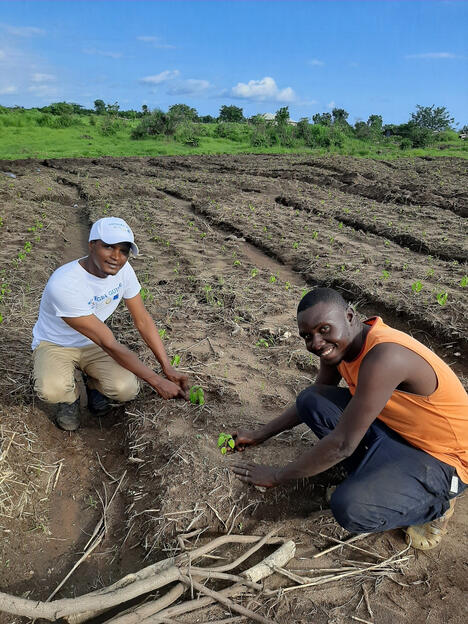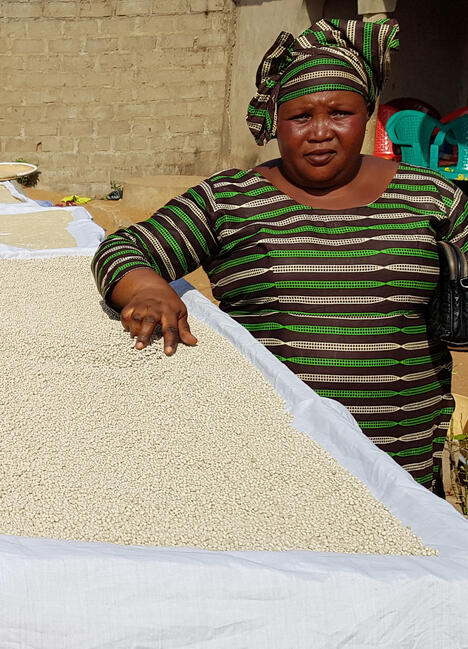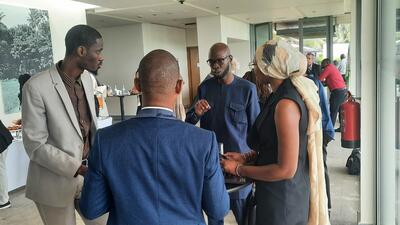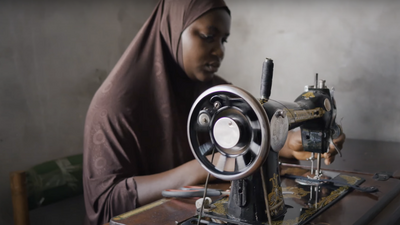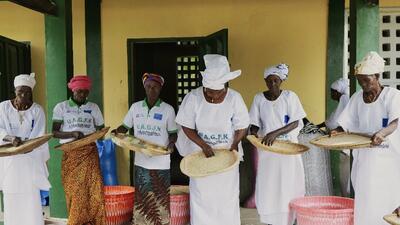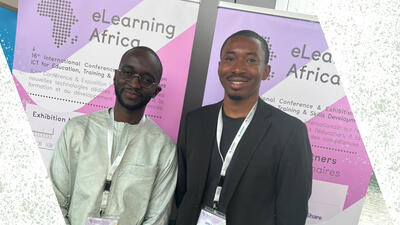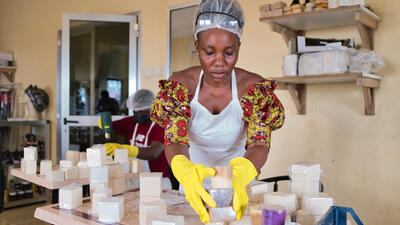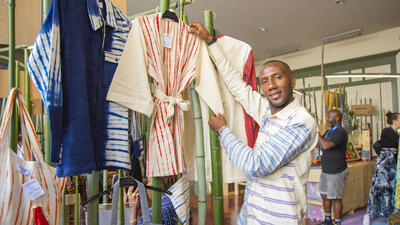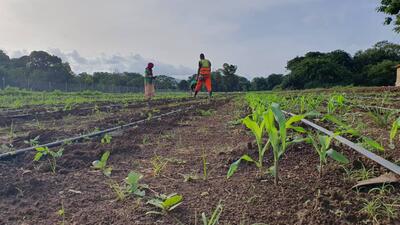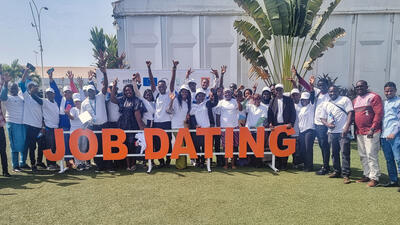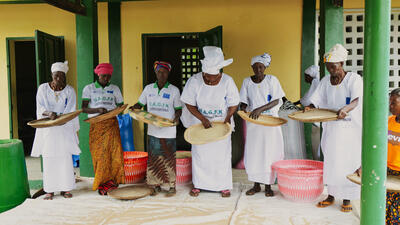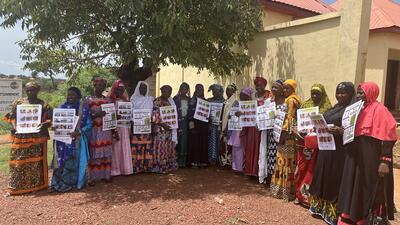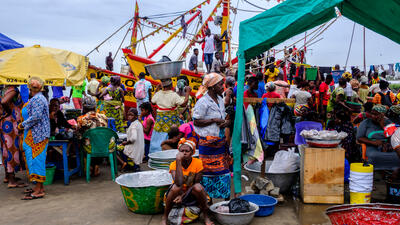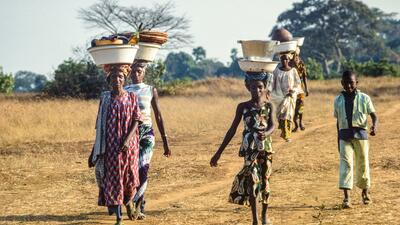
Unity and solidarity for Guinea
United Nations supports Guinean companies weathering the COVID-19 crisis
When Guinea reported its first COVID-19 case on 13 March 2020, the United Nations immediately began supporting the government and other socioeconomic actors with their efforts.
With more than $92 million in funding, the United Nations' multi-sectoral response in Guinea goes beyond healthcare and also places employment protection, micro, small and medium-sized enterprises (MSMEs), workers in the informal sector, productive sectors and decent work at the heart of its priorities.
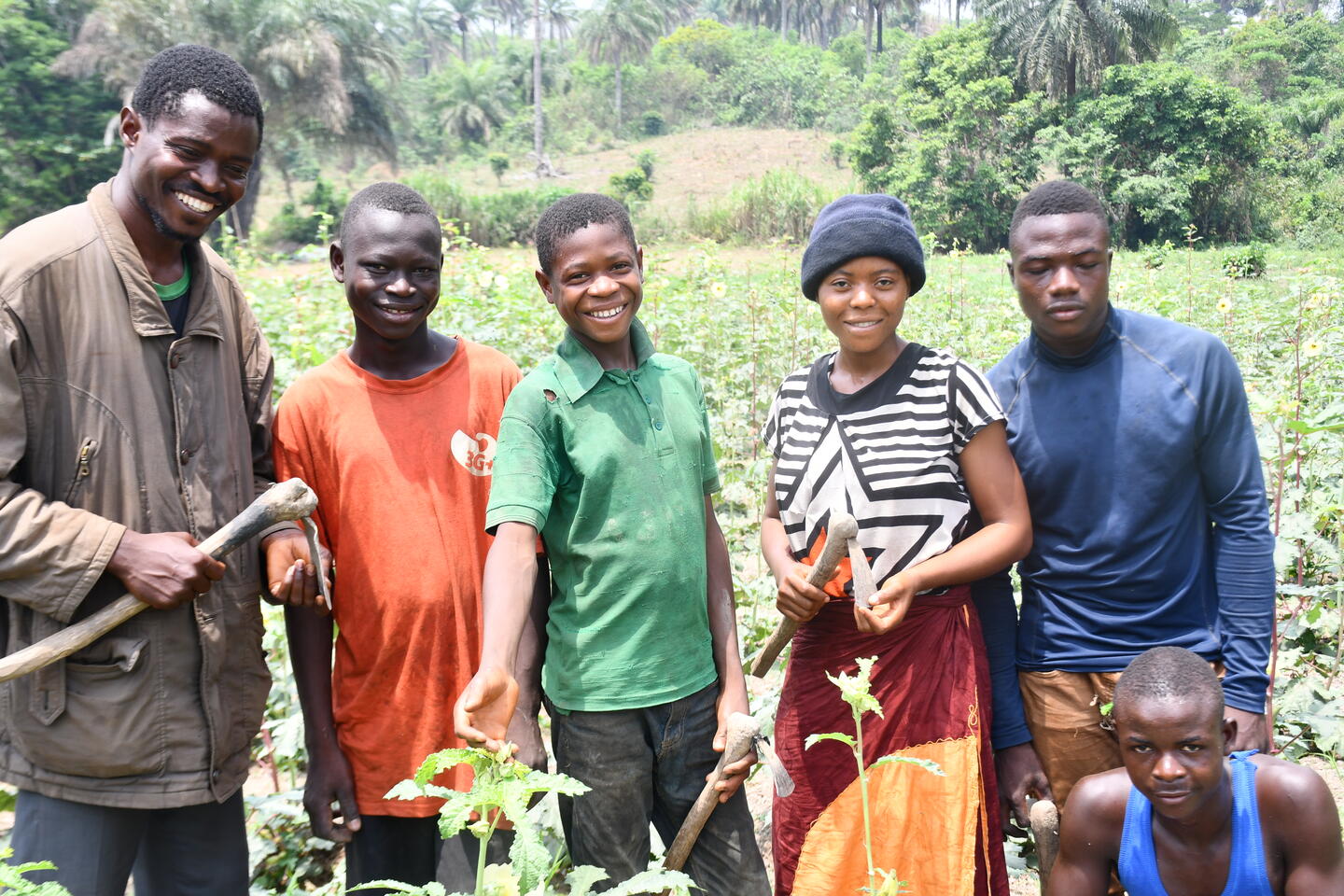
A national study on the economic impact of COVID-19 shows that Guinean workers and entrepreneurs have been particularly affected by the crisis.
Of the 500 formal and informal firms surveyed for this study, more than 80% were negatively affected, with reduced sales due to drops in demand, higher operating expenses, delays in delivery, reduced capital and investment flows, and scarcity of cash flow and raw materials. Among these firms, 68% reported partial layoffs, 54% reduced working hours, 26% had to decrease salaries, and 15% laid off staff.

Partnerships make us stronger
The International Trade Centre's programme to support the socio-economic integration of young people in Guinea (INTEGRA), funded by the European Union, enabled more than 2,500 young Guineans to benefit from capacity-building opportunities.
Over 1,500 businesses and project leaders received tailored support over the past two years.
INTEGRA has also supported the production of more than 100,000 masks while equipping small business delivery fleets with sanitary kits for safety.
The International Trade Centre’s SheTrades project, funded by the Korea International Cooperation Agency, accompanies several women cooperatives in Guinea along the shea butter value chain.
The UN Development Programme (UNDP) supported the country’s Empowerment Centres for Women and Girls with producing sanitary kits. The women and girls produced over 33,750 pieces of soap, 5,000 litres of bleach and 76,000 reusable masks valued at $133,000, enabling them to contribute to recovery efforts, job creation and income-generation.
The International Organization for Migration (IOM) ensured the return and socio-economic reintegration of 6,000 returnees through individual, group and community projects. Economic interest groups developed income-generating activities, with €200,000 distributed among almost 300 of these groups.
To reduce the spread of the pandemic, the UN Industrial Development Organization (UNIDO) has supported more than 18 initiatives contributing to the production of more than 700,000 certified facemasks, and creating 560 jobs, including 390 for women.
The International Trade Centre, UNIDO’s implementing partner, also contributes to the national component of the West Africa Competitiveness Programme in Guinea, through the Pineapple Sector Recovery Project. In this initiative, the International Trade Centre supports actors along the pineapple value chain in increasing the access of Guinean local varieties to regional and international markets.
I am encouraged by the World Bank ranking Guinea among the top 10 African countries to rebound in economic activity in 2021 – and I believe that only together, through unity and solidarity, will we be able to face and survive this crisis.




